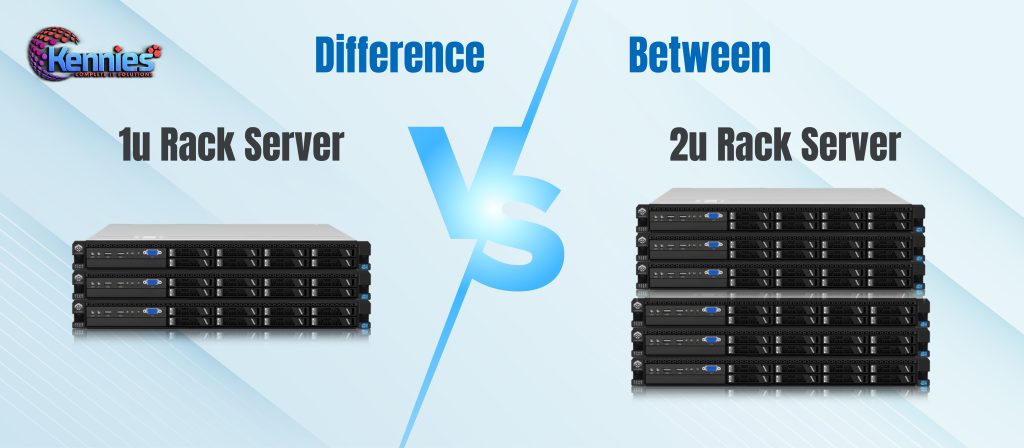
Server colocation has evolved as a strategic preference for businesses looking to expand their IT infrastructure. In today’s modern era, where data security, uptime, and scalability are supremely crucial, colocation provides a cost-effective solution that offers the best of both worlds: the control of owning your servers and the benefits of a professionally managed data center.
Unlike traditional hosting solutions, server colocation enables organizations to house their physical servers in a third-party facility primarily designed to provide optimal power, cooling, and network connectivity. This setup not only certifies that your servers run in a stable and secure environment but also lessens the weightage of managing the physical infrastructure.
Moreover, colocation facilities generally provide robust security measures, including round-the-clock monitoring, biometric access controls, and redundant power supplies, ensuring that your crucial data and applications remain secure and accessible. Today, in this blog post, we are going to learn how server colocation in India helps you expand your business performance and security. So, without any delay, let’s get started.
What is Server Colocation, and how does it work?
The term colocation refers to a data center that allows you to rent out space for your data and equipment. For instance, instead of using your own on-premise space for your servers, cables, network devices, and other computing resources, you can rent a rack space in a data center. This colocation data center consists of servers and other equipment from several organizations in a single data center. The hardware is often owned by the business renting the space, and the data center staff only houses it. It also indicated the idea that business equipment may be spread out over multiple locations. For example, they might have servers spread over three or four colocation data centers.
So, exactly how a colocation data center works is that enterprise customers use colocation data centers to store their servers and other gear needed for regular business operations. Colocation permits adequate bandwidth while offering shared, secure areas in cool, controlled environments suited for servers.
Furthermore, the client or organization accesses the server over the Internet or on a VPN connection. The main objective behind server colocation is to utilize enhanced IT support services on key IT infrastructure without incurring high operational costs. Apart from this, servers are also offered IP, bandwidth, physical security, power, and backup services to the colocated server.
Understand how server colocation upgrades business performance & security
- Increased Uptime and Reliability: Server colocation services offer redundant power, cooling, and network connectivity, ensuring maximum uptime and rational performance, which is vital for business continuity. Apart from offering a physical space for servers, colocation facilities invest in redundant power sources, advanced cooling systems, and backup generators.
All these components work systematically to ensure indestructible uptime, a significant element for businesses dependent on consistent digital operations. The redundant infrastructure not only protects against technical failures but also overcomes the risks linked with unforeseen events like power outages or natural disasters.
- Improved Data Security: In today’s digital age, data security is a top concern. Colocation data centers address this issue by applying modern security measures, including surveillance infrastructure, biometric controls, and fire suppression equipment, in order to set up a strong physical security framework. Apart from this, colocation offers to actively engage in cybersecurity best practices to secure your confidential business data from unauthorized access. This holistic approach to security in colocation hosting extends beyond physical safeguards to include complete cybersecurity measures.
- Scalability: In the ever-changing field of business, flexibility plays a crucial role in determining growth. Colocation services offer companies the ability to grow their IT systems effectively. This ability to expand is not just helpful; it is a smart necessity in light of evolving business requirements.
Moreover, colocation enables companies to adapt quickly to evolving needs without the limitation of purchasing new equipment or adjusting current configurations. Colocation services’ natural scalability complements the ever-changing modern business landscape, allowing IT infrastructure to expand alongside the company’s growth without hindering it.
- Cost-Efficient Operations : Cost consideration is the first thing to take care of when it comes to any business decision. Colocation hosting presents a compelling case for financial efficiency. Controlling an in-house data center is a substantial financial decision, consisting of investments in infrastructure, maintenance, and security. Server colocation provides a cost-effective solution by enabling businesses to share the expenditure of these facilities with other entities.
- Expand Connectivity : In a globally connected environment, the efficiency and trustworthiness of a network can greatly impact business operations. Colocation data centers, commonly marketed as central points for networks, play a crucial part in enhancing heightened connectivity. Co-locating servers allows businesses to access a variety of carriers and internet service providers, which enhances network reliability and diversity.
The improved performance results from the strategic advantage gained through enhanced connectivity provided by colocation. The phrase “data center colocation services” underscores the complex nature of this connectivity improvement, stressing the significance of colocation in keeping businesses adaptable and able to meet the constantly changing needs of the digital environment.
Conclusion
As the digital world continues to evolve, server colocation in India stands out as a strategic imperative for organizations looking to expand their operational efficiency and competitiveness. Server colocation plays a significant role in guaranteeing the evolution of modern businesses. From increased dependability, scalability to cost savings, the benefits of leveraging colocation services are clear. As you plan for the robust future of your organization, understanding the significance of colocation data centers will provide you a push. However before opting for server colocation services, it is crucial to choose the right partner.
Here at Kennies Star India Pvt.Ltd, we provide colocation services that are designed to streamline your business operations with efficiency and reliability. With the latest security measures, we offer an impenetrable shield against cyber threats or unauthorized access to ensure the safety of your data. So, why are you waiting? Experience seamless colocation services powered by our Tier 3 data centers located in Delhi, NCR, and Mohali, Punjab. Our primary goal is to tailor our clients’ specific needs and provide them top-notch services. Get in touch with us to find out more about Kennies IT.
Frequently Asked Questions
What is server colocation, and how does it differ from traditional hosting?
Server colocation involves housing your physical servers in a third-party data center, offering benefits like enhanced security and reliability, while traditional hosting typically involves renting server space from a provider with less control over hardware.
How does server colocation improve business performance?
Colocation enhances performance through high-speed connectivity, redundant power supplies, and optimal cooling systems, ensuring your servers operate efficiently with minimal downtime.
What security measures do colocation facilities provide?
Colocation centers offer advanced security features, including 24/7 surveillance, biometric access controls, fire suppression systems, and multi-layered physical security to protect your servers and data.
Can server colocation help my business scale efficiently?
Yes, server colocation provides the flexibility to easily scale your IT infrastructure by renting additional rack space as your business grows without the need for significant capital investment in new facilities.
Is server colocation cost-effective for small to medium-sized businesses?
Server colocation can be cost-effective for SMBs by reducing the need for in-house data center infrastructure, lowering operational costs, and providing access to enterprise-level facilities and support.










